Respect is a big part of workplace relationships. If we know that our colleagues lack integrity and cannot be trusted, how are we supposed to complete our joint projects without constant worry and stress?
A few days ago, Reddit user Legal_Section679 shared a post highlighting this exact problem. They described witnessing a coworker, Emma, who had claimed to have celiac disease, eating regular pizza at an office party.
The Redditor said they confronted the woman about it, but she got defensive and painted them as the villain for making a scene in public, insisting that her medical information had been “outed.”
Office pizza parties are usually a chance for coworkers to relax, chat, and bond

Image credits: Freepik (not the actual photo)
But this one led to a full-blown argument
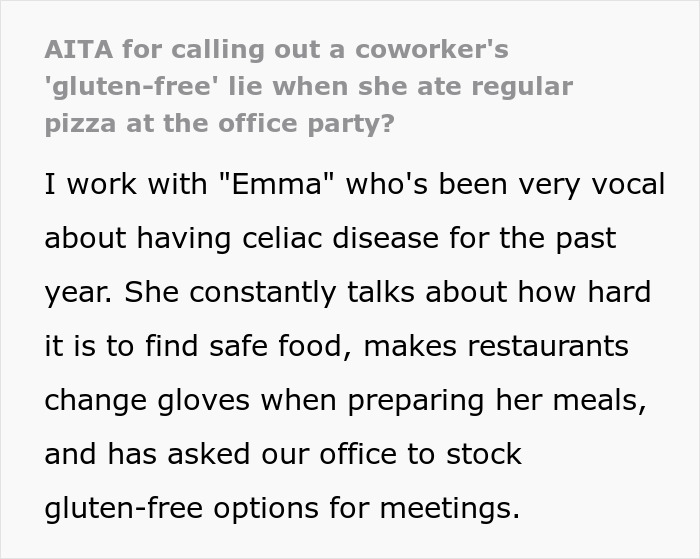
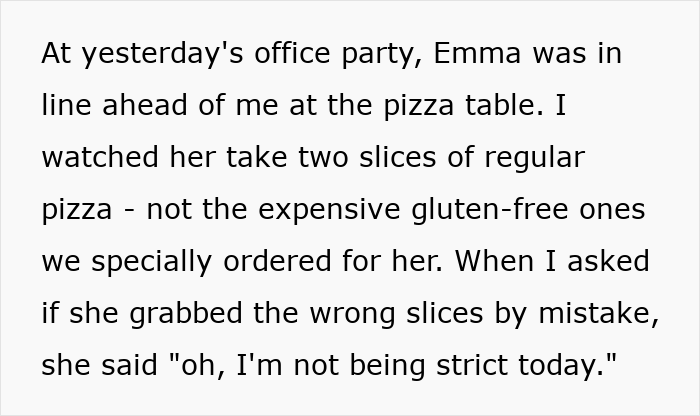
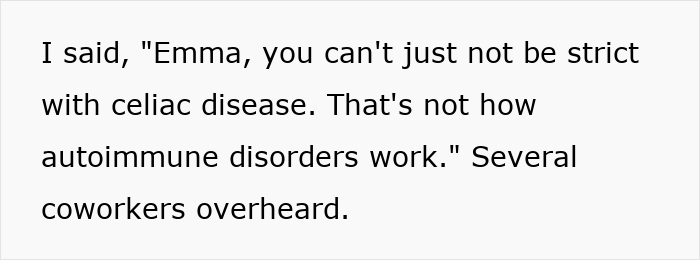
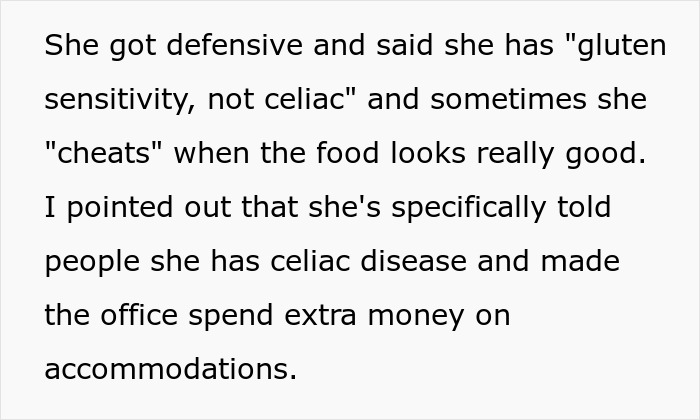
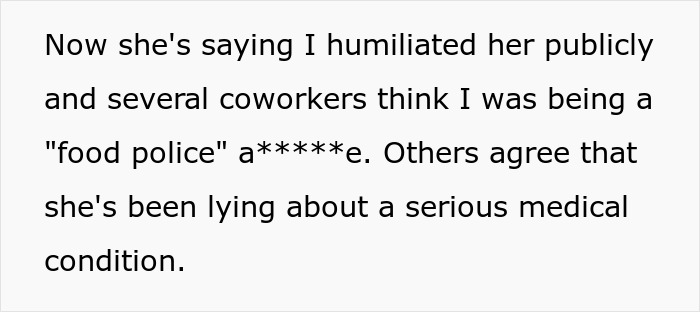

Image credits: Stockbusters/Freepik (not the actual photo)
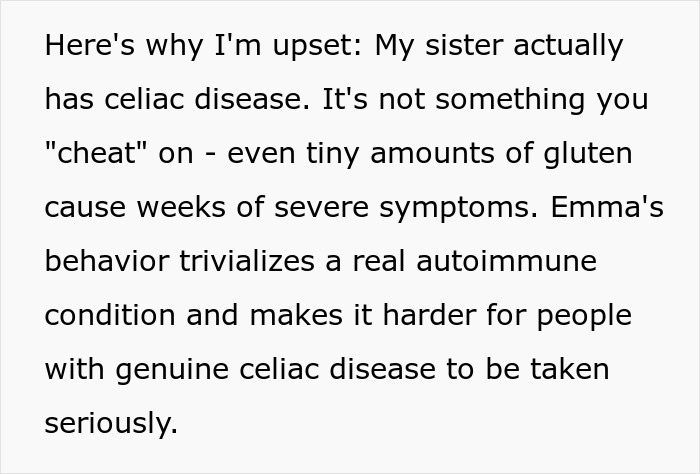
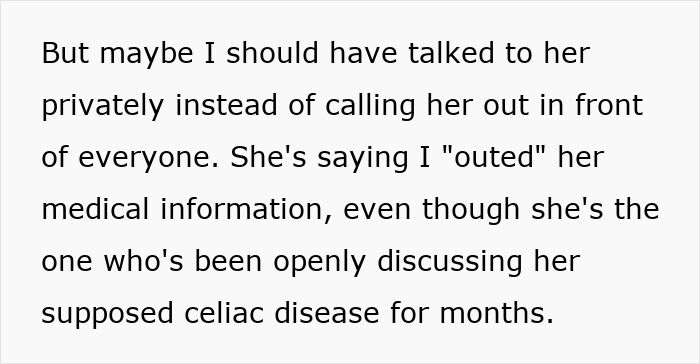

Image credits: Legal_Section679
It’s difficult to say if calling out the coworker was the right move or not
The Redditor was right, celiac disease is a serious condition. If you have it, eating gluten triggers an immune response to the gluten protein in your small intestine. Over time, this reaction can damage your small intestine’s lining and prevent it from absorbing nutrients. This subsequent condition is called malabsorption.
The intestinal damage causes symptoms such as diarrhea, fatigue, weight loss, bloating, and anemia. If not properly managed, it can lead to serious complications.
There’s no definite cure for celiac disease. But for most people, following a strict gluten-free diet can help manage symptoms and help the intestines heal.
But there might be no clear answer to the question whether or not the woman needed to be confronted. “There are certainly some battles worth fighting, particularly when they’re values-based,” says Lisa Stephenson, founder of The Coach Place and a globally recognized high-impact coach, consultant, keynote speaker, and author.

Image credits: pvproductions/Freepik (not the actual photo)
According to her, if something that you highly value has been wronged, then there is nothing wrong with sharing your view and speaking your truth. “Getting along with difficult people is not the same as justifying or turning a blind eye to what is unacceptable, such as bullying or discrimination,” Stephenson explains.
“But if they’re simply rubbing you up the wrong way, offering viewpoints that are different from your own, or holding fast to an issue that will dissipate over time, you should probably let it slide.”
“In the end, we so often feel the need to be right. That’s our egos at play. We all have one. We want to look good, and we believe it’s always someone else’s fault. But there are occasions in life — especially at work … when showing compassion … is so much more important than proving you know better,” adds Stephenson, author of Read Me First: Before You Write the Next Chapter in the Story of You.
The key lies in being empathetic, looking at the situation from the other person’s perspective, and being curious rather than judgmental. “Take the time to consider the feelings, insecurities, ideas, and experiences of whoever it is you’re clashing with,” Stephenson says.
Most people who read the story believe the author did nothing wrong

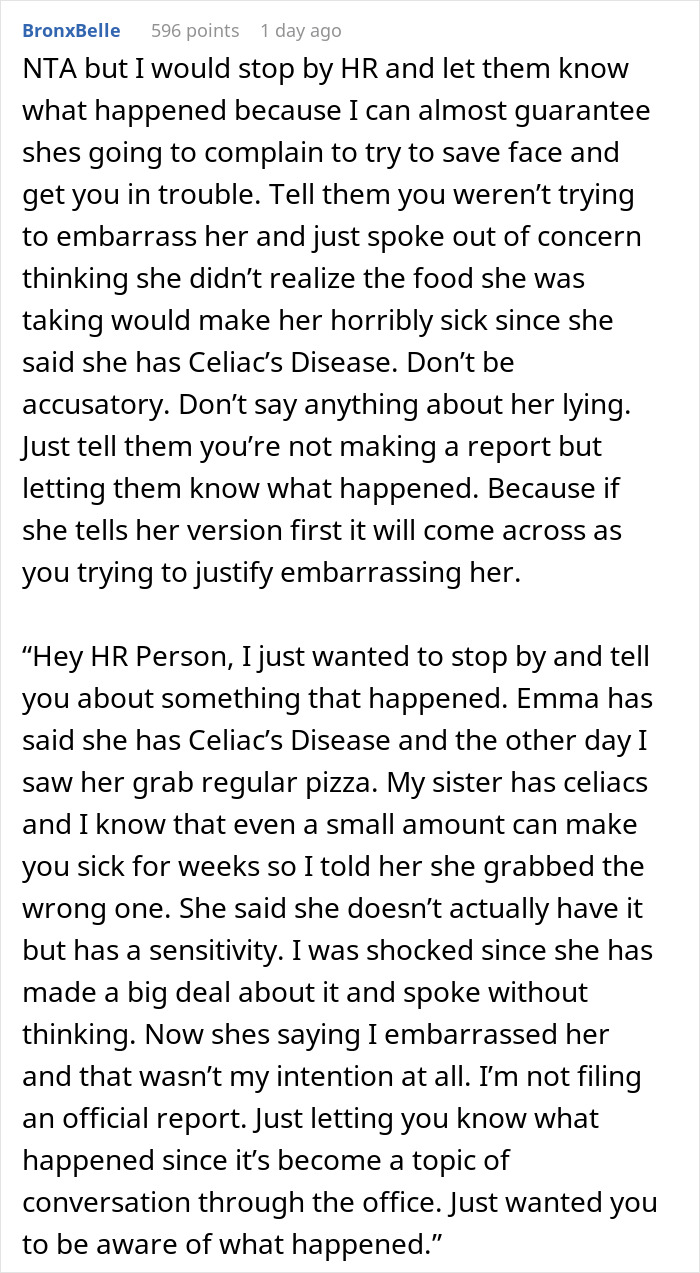
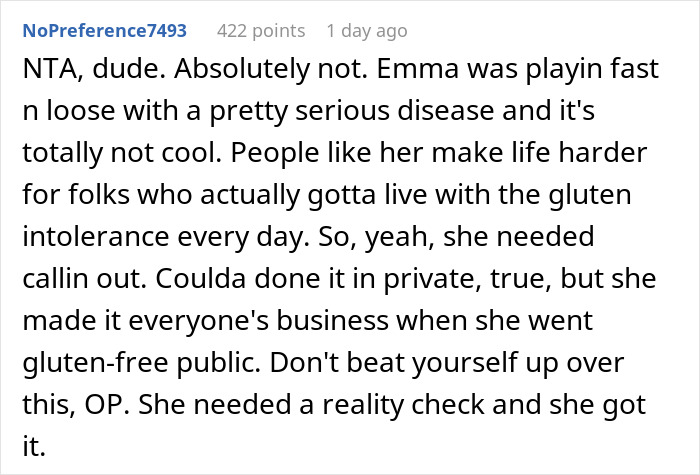
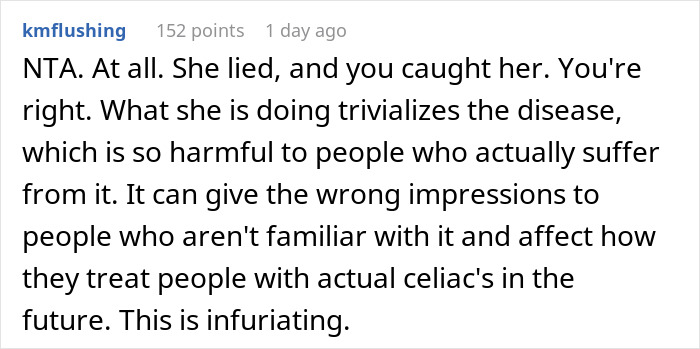
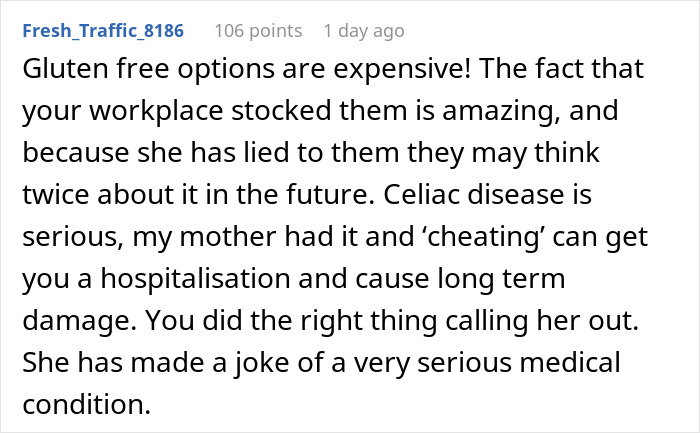
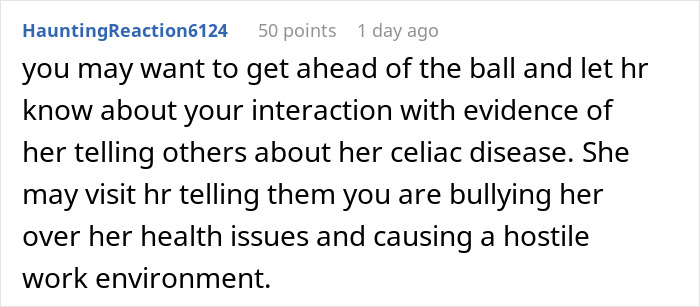

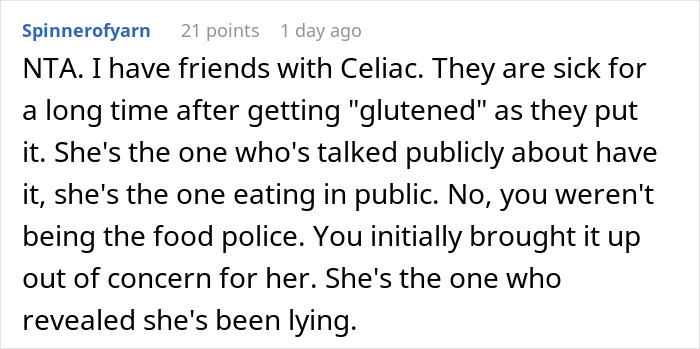

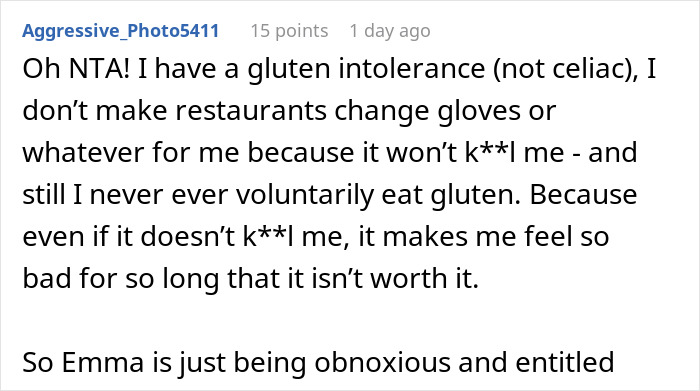


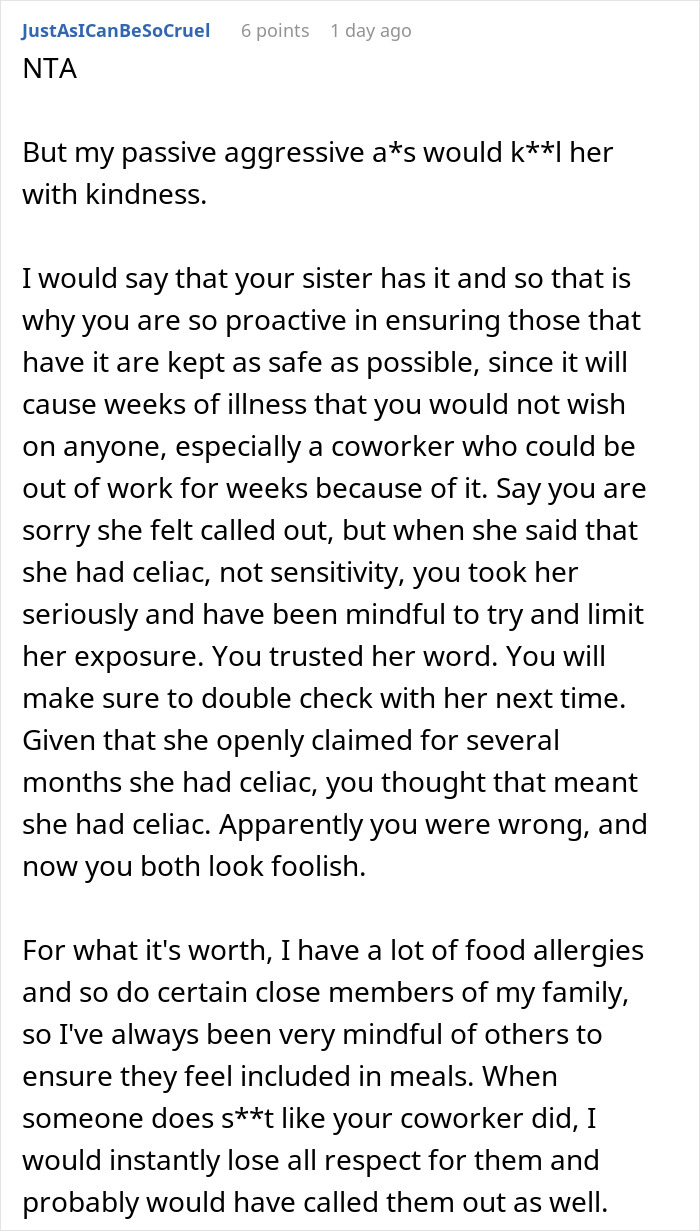

Some, however, think they were being too nosy



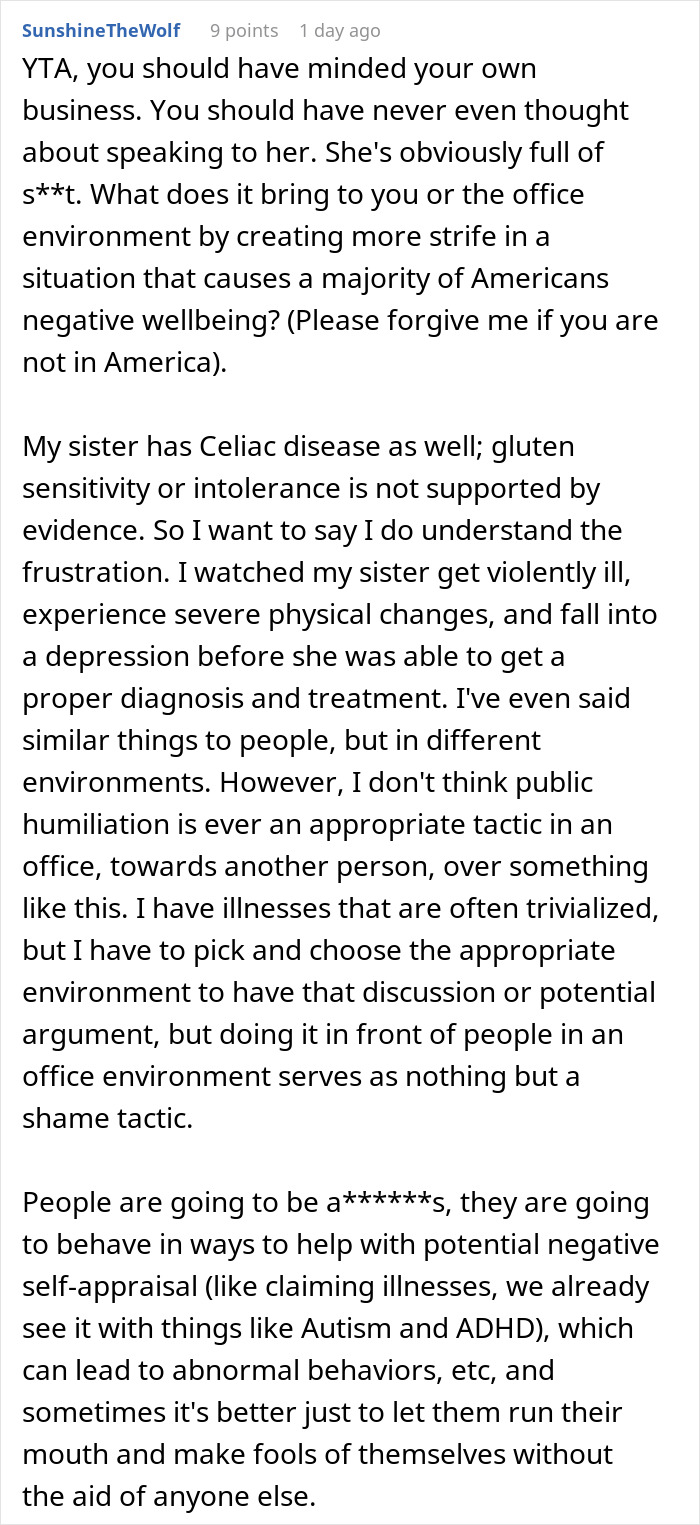
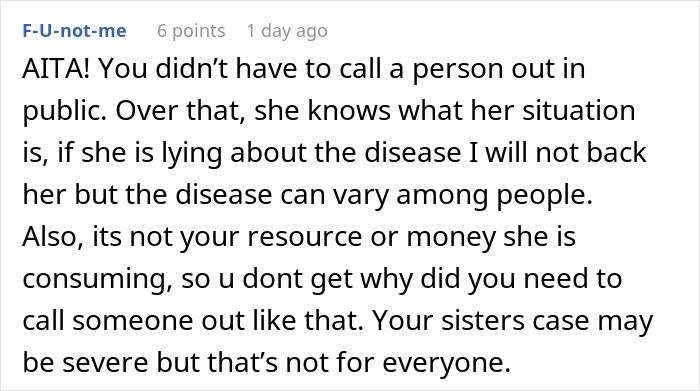


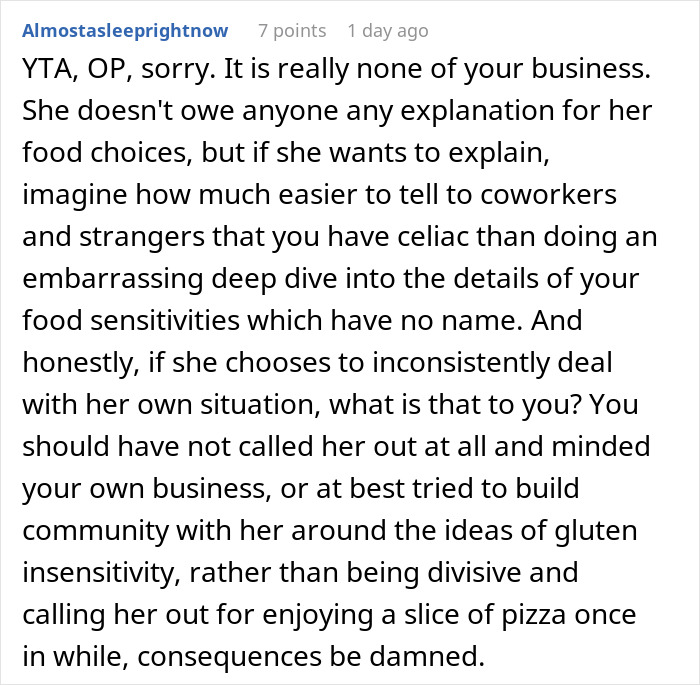
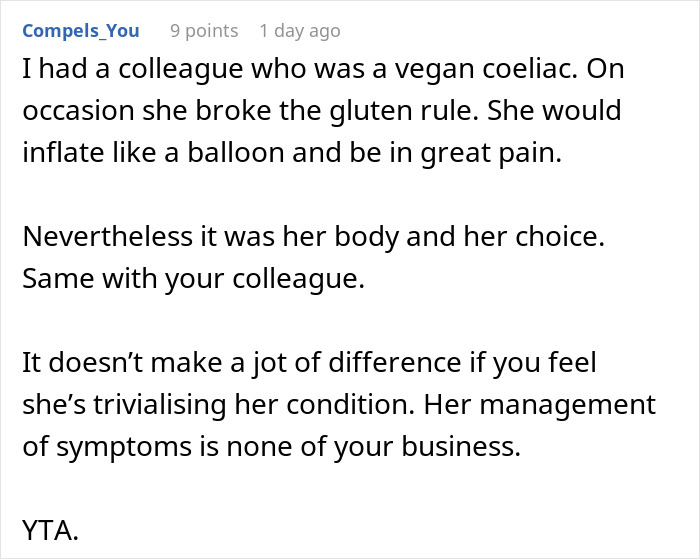

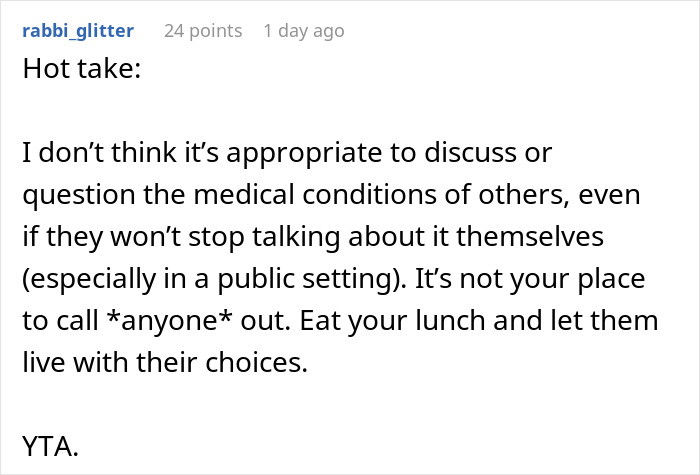
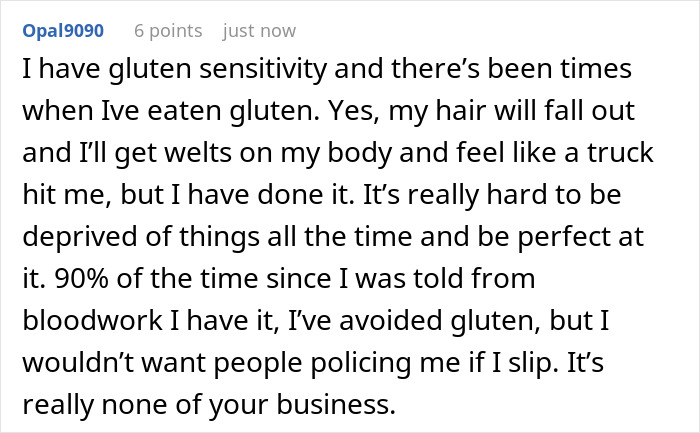
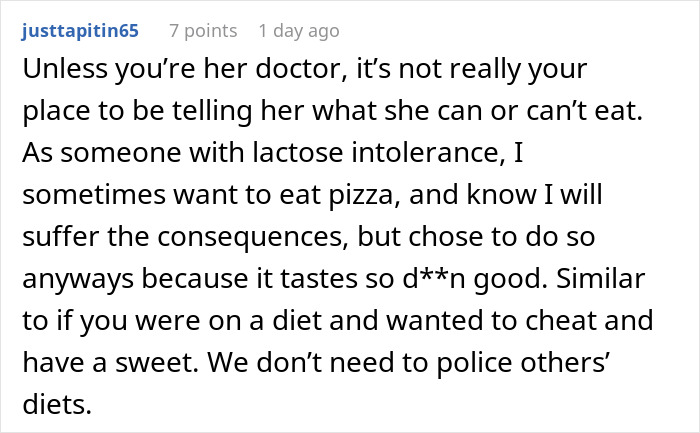
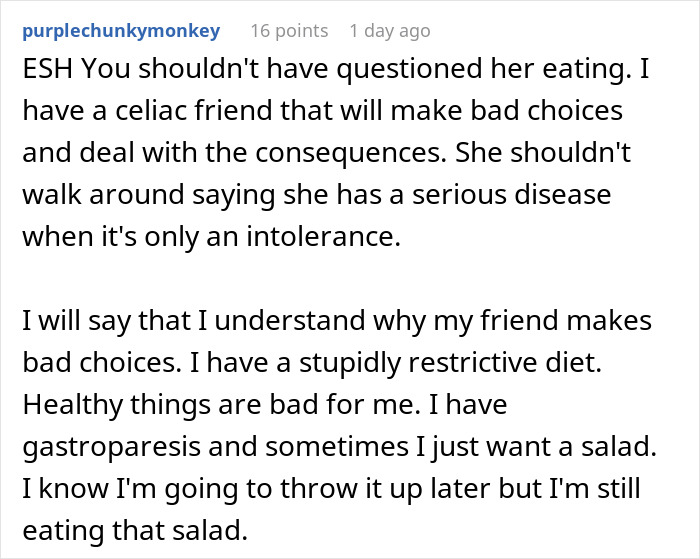
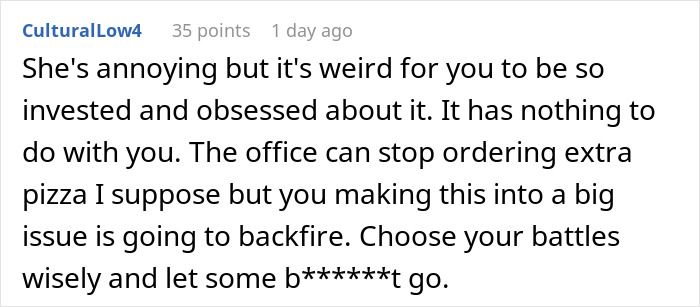
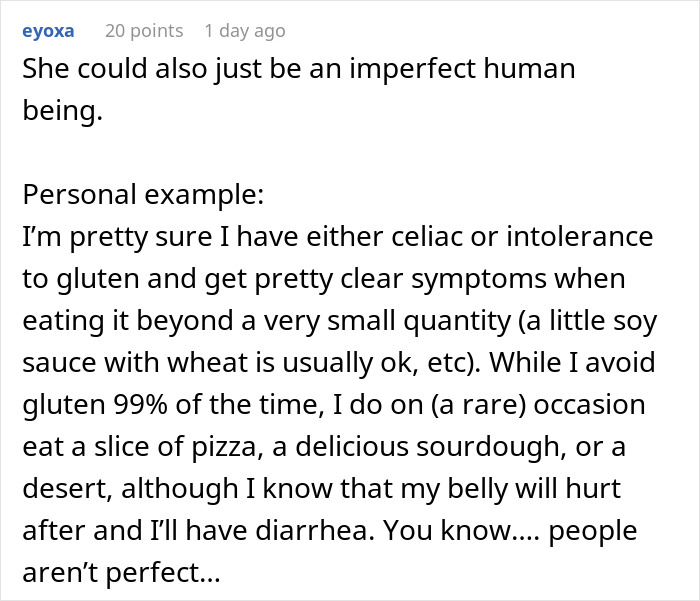
 Follow Us
Follow Us




